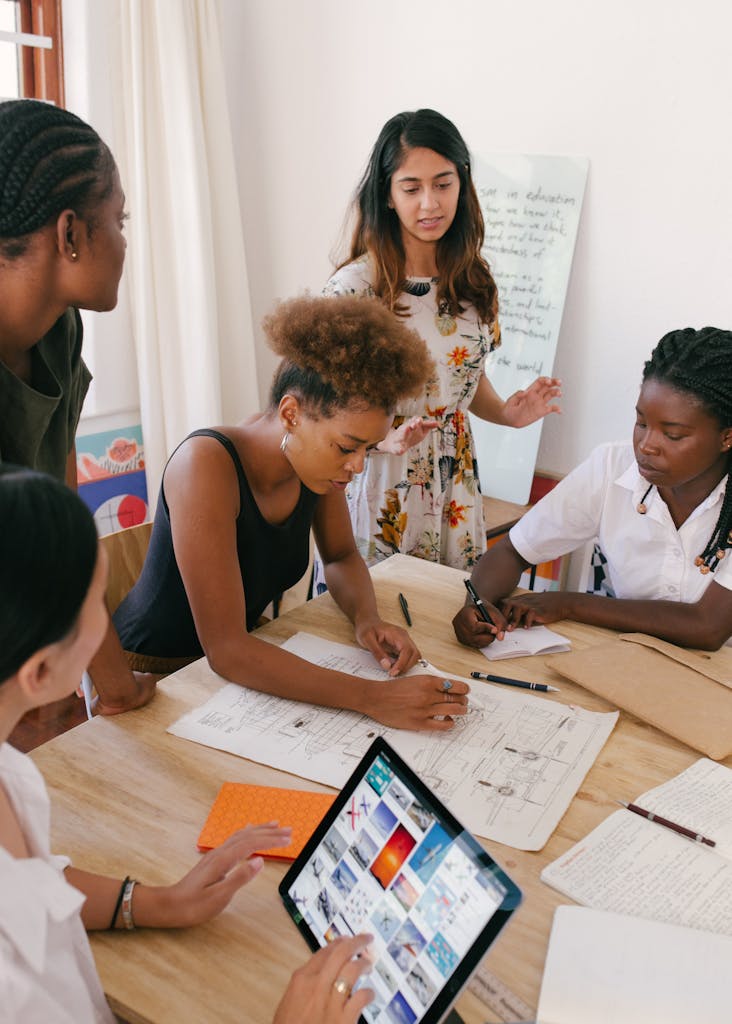Volunteering is a form of participative leadership. When you volunteer, you create opportunities for change. You work with like-minded individuals to achieve your shared vision.
Volunteer
When you volunteer, you are building your personal power. You demonstrate to people your passion and commitment. You show that you are a person they can trust because you are a go-giver.
People from different walks of life can volunteer.
If you are a high school student, you may help organize a Sunday School. You will learn how to work with young people. You will likely develop your persuasion and storytelling skills. You will understand the importance of making plans and organizing individuals. You will develop your public speaking skills too.
I learned much about leadership when I was in high school. I was leading more than 200 students. I discovered that leadership is a relationship you build every day. You create your credibility by showing what you can do for others consistently. I was able to use my experience in leading the student council when I got into college. I was able to use the same in training managers and supervisors.
Activism is volunteer work too. You are fighting for a cause; you speak for those who cannot speak for themselves and create a much better vision than the present.
Volunteer work does not need to be very long. You may consider volunteer work as a weekly or monthly project.
You don’t have to wait for someone to promote you to a leadership position. You don’t need a title to become a leader. Volunteerism provides you with opportunities to grow your leadership, develop leadership skills, and build confidence in leading others.
Yes, volunteerism is leadership.
Leadership and Volunteering
Leadership means guiding, inspiring, and influencing others to reach a common goal. It includes skills like decision-making, communicating effectively, showing empathy, setting a clear vision, and solving conflicts.
People don’t simply become great leaders; they develop into one. Volunteering offers a powerful way to build these skills.
Volunteering is when people willingly give their time and skills to help others, not expecting any money in return.
In the Philippines, a country celebrated for its strong sense of community cooperation or “Bayanihan”, volunteering is common.
Filipino youth often volunteer in various activities. They might help during natural disasters, spend time in orphanages, work on protecting the environment, or feed the community.
Volunteering, while inherently fulfilling and noble, also serves as a powerful platform for developing oneself into a good leader.
When we think about volunteering, we usually think about the help we give to communities or the kindness it spreads. But there’s another big benefit to volunteering: it’s a great way to build leadership skills.
Volunteering often requires solving problems, working as a team, adapting to new situations, communicating well, showing empathy, and making decisions – all vital leadership skills.
This hands-on experience helps volunteers practice leadership in a real-world setting. Through volunteering, Filipino youth can face and understand leadership challenges, preparing them to become leaders in their future jobs.

Leadership Lessons from Volunteering
Much of what I learned about leadership was learned as a volunteer. When John Maxwell said that leadership is influence, I readily understood.
Because volunteers lead by way of influencing others.
As a volunteer, I work with people whose salaries are not dependent on me. They don’t have to follow me. They don’t have to play nice to me. But I have seen that most of us worked harder as if we had the biggest salaries in the world.
It is because when people volunteer, they are paying it forward. They give without expecting anything in return. I often say that there are two kinds of leadership powers: personal and legitimate.
When you volunteer, you enhance your personal power.
Empathy
Volunteering often involves working closely with individuals from diverse backgrounds and with unique needs. This experience fosters empathy, which is the ability to understand and share the feelings of others.
When you volunteer at a homeless shelter, for example, you can begin to understand the hardships and struggles faced by these individuals. This understanding can make you a more compassionate and effective leader.
Empathy in the workplace can enhance team dynamics, improve communication, and boost overall morale.
Communication
Effective communication is a cornerstone of successful leadership. As a volunteer, you will likely interact with a variety of people including team members, project leaders, and the individuals you are serving.
This interaction necessitates clear and effective communication.
For example, you might need to coordinate with your team to organize a community event. This would require you to express your ideas clearly, listen to others, and provide and receive feedback. These experiences can help refine your communication skills, making you a better leader in the workplace.
Teamwork
Most volunteering activities involve working as part of a team. As you work with others to achieve a shared goal, you will learn the importance of collaboration, respect, and mutual support – all vital components of teamwork.
Volunteering at your barangay health centers, for example, might involve coordinating with other volunteers to efficiently serve the people in your community. The ability to work effectively within a team is a critical leadership skill, as leaders often need to inspire and manage teams in the workplace.
Problem-solving
While volunteering, you might face unexpected challenges that require quick and effective solutions. These could range from logistical issues to interpersonal conflicts within your team.
Learning how to address these problems can greatly enhance your problem-solving skills. For example, if you’re working on a disaster relief operation and the supplies are delayed, you would need to figure out a solution quickly.
As a leader in the workplace, you will regularly face challenges that require problem-solving, making this an invaluable skill to learn through volunteering.

If you’re building a business and you are playing to win…
Let’s install one shift that moves metrics.
→ Shift Experiences


